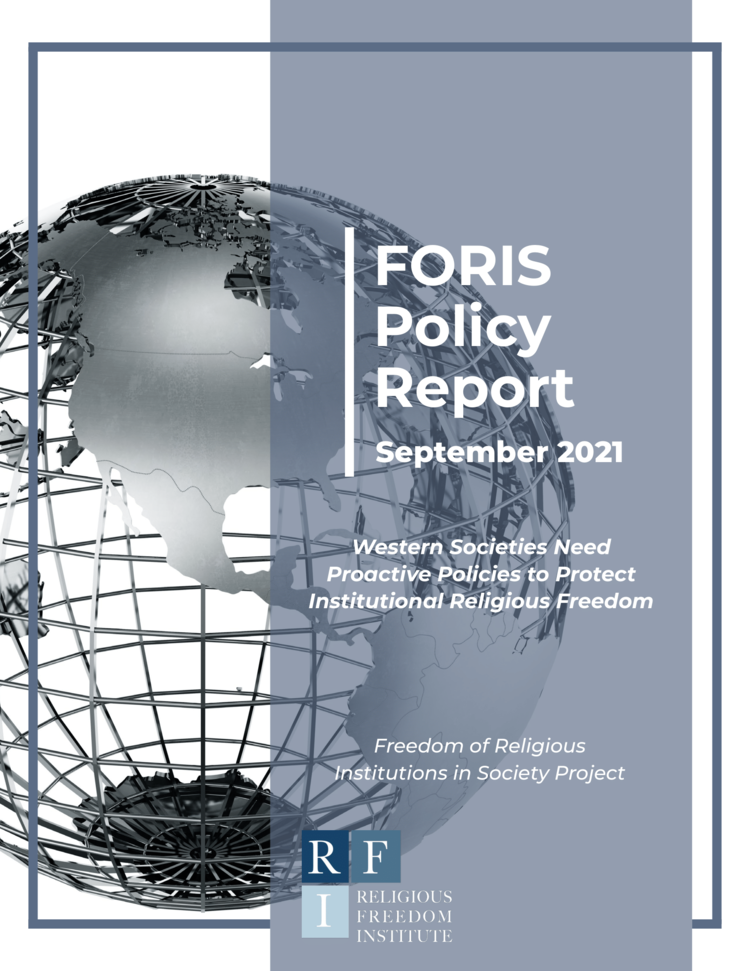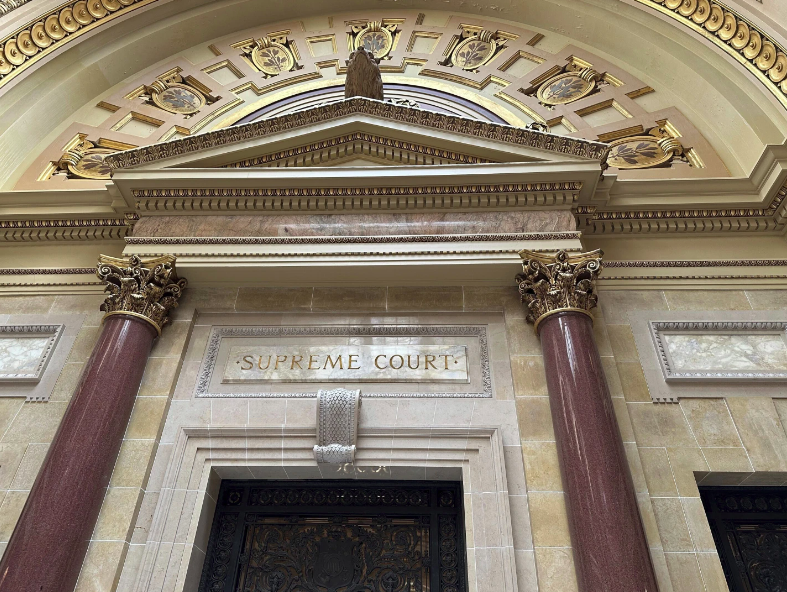 The Religious Freedom Institute has released a policy report titled, “Western Societies Need Proactive Policies to Protect Institutional Religious Freedom.” Produced under RFI’s Freedom of Religious Institutions in Society Project (FORIS), an initiative funded by the John Templeton Foundation, this report is the third in a series of three FORIS policy reports published this year.
The Religious Freedom Institute has released a policy report titled, “Western Societies Need Proactive Policies to Protect Institutional Religious Freedom.” Produced under RFI’s Freedom of Religious Institutions in Society Project (FORIS), an initiative funded by the John Templeton Foundation, this report is the third in a series of three FORIS policy reports published this year. Co-authored by FORIS scholars Paul Marshall of Baylor University, Timothy Shah of the University of Dallas, Stanley Carlson-Thies of the Institutional Religious Freedom Alliance, and Kathleen Brady of Emory University, it sets forth a framework for policymakers—primarily in the United States, Canada, and other Western countries—to protect institutional religious freedom. Mark Rienzi, also a FORIS scholar (and President of the Becket Fund for Religious Liberty), contributed to the development of key themes and provided comments on the report.
This policy report responds to the challenges posed by an increasingly secular Western cultural context within which the understanding of institutional religious freedom has evolved and become the subject of intense controversy, even while the occasions for protecting that freedom have become more numerous.
What follows is a summary of the report’s key observations and recommendations:
Religion: Central, Public, and Wide-ranging
Sound institutional religious freedom policy should reflect a broad conception of what counts as religion and, therefore, as a religious institution. Religious freedom protections must extend to organizations that operate according to their religious beliefs and principles, which often encourage and even mandate these religious organizations to provide goods and services not only to their own members but also to society more broadly.
Rights Are Individual and Institutional
Religious freedom does not attach only to persons’ individual rights but applies also to the institutions they form to serve and advance the basic human good of religion. Any assertion of human rights as belonging only to human persons qua individuals fails to account for the inherently communal and relational nature of human beings. It also ignores history and the long-held, deeply rooted understanding that various rights also attach to associations, corporations, and other institutions—both religious and non-religious.
Importance of Religious Institutions
Policymaking efforts must attend to the crucial contributions religious institutions make to society at large and not only to their own members. Religious institutions represent and undertake a significant portion of a society’s charitable and educational activities. They also contribute to the good of the people within them. Thus, denying the freedom of a religious institution denies the dignity of those associated with it.
Proactive Public Policy
Institutional religious freedom requires proactive public policy, which respects and promotes the existence in society of a plurality of organizations acting in accordance with their fundamental convictions. The government should avoid mandating the practice of secularism or of any one belief system to the detriment of others. It should also protect groups with unpopular beliefs. The government’s overarching policy objective in this area should be to minimize conflict and harm while maximizing the ability of persons and organizations to live consistently with their respective religions and philosophies. Advocates for religious freedom must undertake the practical tasks of lobbying for the passage of legislation and urging executive action at the national, state/provincial, and municipal levels that give due attention to institutional religious freedom.
Litigation and Other Legal Action
In the United States, following developments in Canada and elsewhere, recent government rules embracing new understandings on family and sexuality have placed direct and indirect pressures on religious institutions to violate longstanding religious doctrines in their programs and ministries. This unsettling trend contributes to the proliferation of litigation in U.S. courts. At stake in these cases is the freedom of religious institutions to order their internal affairs (e.g., doctrines, mission, employment standards, leadership) as well as their external affairs (e.g., expressing their faith through ministries designed to provide health care, education, and/or care for the poor and vulnerable).
Conclusion
As Western governments continue to expand in their regulation of society, purportedly neutral, generally applicable rules will impose increasing burdens on religious institutions that dissent from the prevailing beliefs undergirding these rules. Proactive pluralistic policies, therefore, will be more important than ever in Western societies going forward. A firm commitment to institutional religious freedom should be a centerpiece of those policies.
Download and read the full report: Western Societies Need Proactive Policies to Protect Institutional Religious Freedom
Other FORIS policy reports:
-
Bauman, Chad, Robert Hefner, Timur Kuran, and Thomas Berg. “America’s International Religious Freedom Policy Must Account for Competing Local Definitions of Religion and the Common Good.”
-
Kuru, Ahmet, Robert Hefner, and Jeremy Barker. “The Intersection of Blasphemy Laws & Institutional Religious Freedom: Egypt, Indonesia, Pakistan, and Turkey.”
THE RFI BLOG

How Soccer Reveals Different Meanings Of ‘Secular’ In France And The US

RFI’s Ismail Royer Meets with Delegation from India

Protecting the Unborn, Mothers, and Medical Ethics: The Stakes of Arkansas’ Amendment

Wisconsin Supreme Court Punishes Catholic Charities for Serving Everyone

Wisconsin Supreme Court Decision Truncates Religion
CORNERSTONE FORUM

Public Bioethics & the Failure of Expressive Individualism

Religious Liberty in American Higher Education

Scotland’s Kate Forbes and the March of Secularism

70 Years of Religious Freedom in Sweden: Prospects and Challenges

